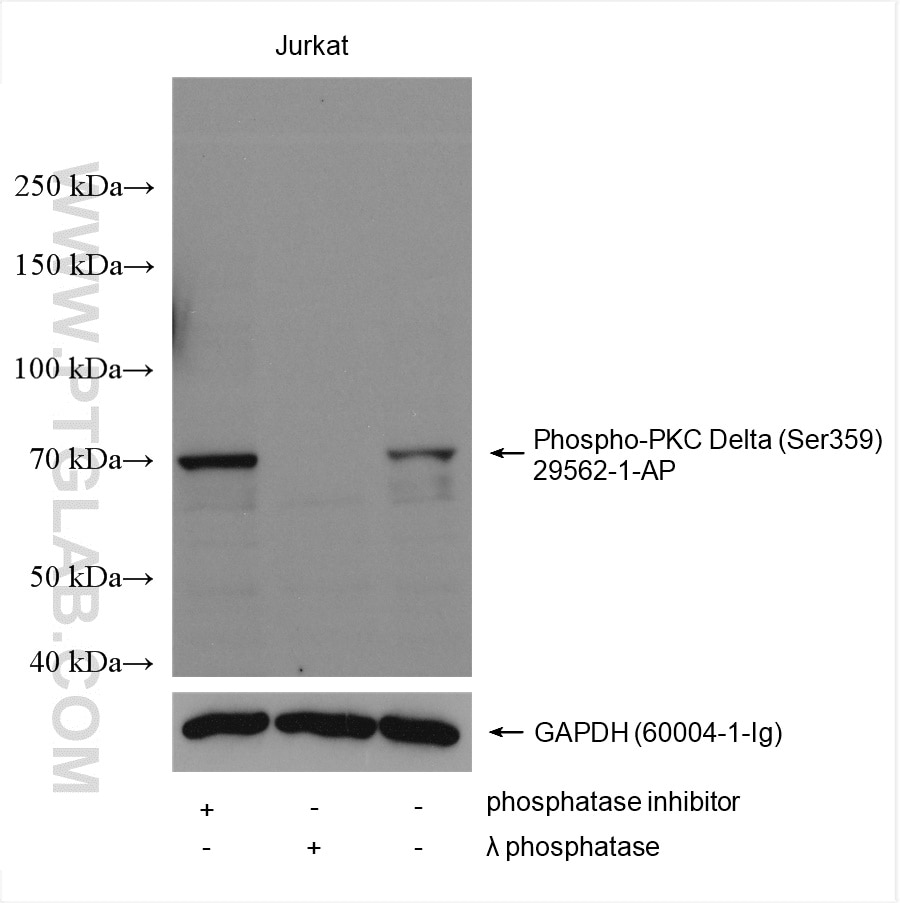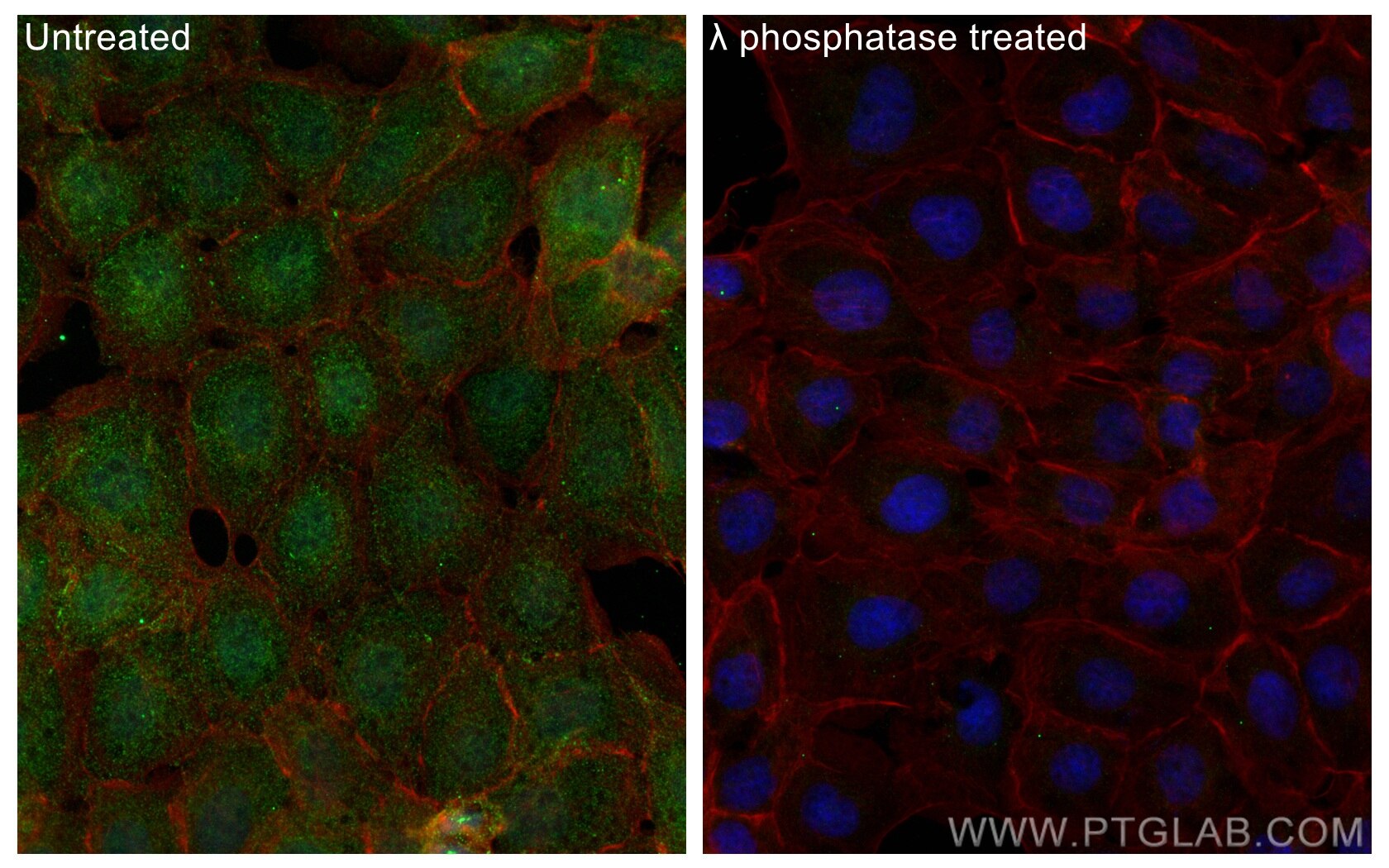Tested Applications
| Positive WB detected in | λ phosphatase treated Jurkat cells |
| Positive IF/ICC detected in | λ phosphatase treated A431 cells |
Recommended dilution
| Application | Dilution |
|---|---|
| Western Blot (WB) | WB : 1:500-1:1000 |
| Immunofluorescence (IF)/ICC | IF/ICC : 1:50-1:500 |
| It is recommended that this reagent should be titrated in each testing system to obtain optimal results. | |
| Sample-dependent, Check data in validation data gallery. | |
Published Applications
| WB | See 1 publications below |
Product Information
29562-1-AP targets Phospho-PKC Delta (Ser359) in WB, IF/ICC, ELISA applications and shows reactivity with Human samples.
| Tested Reactivity | Human |
| Cited Reactivity | mouse, rat |
| Host / Isotype | Rabbit / IgG |
| Class | Polyclonal |
| Type | Antibody |
| Immunogen |
Peptide Predict reactive species |
| Full Name | protein kinase C, delta |
| Calculated Molecular Weight | 78 kDa |
| Observed Molecular Weight | 70 kDa |
| GenBank Accession Number | BC043350 |
| Gene Symbol | PKC Delta |
| Gene ID (NCBI) | 5580 |
| RRID | AB_2923597 |
| Conjugate | Unconjugated |
| Form | Liquid |
| Purification Method | Antigen affinity purification |
| UNIPROT ID | Q05655 |
| Storage Buffer | PBS with 0.02% sodium azide and 50% glycerol, pH 7.3. |
| Storage Conditions | Store at -20°C. Stable for one year after shipment. Aliquoting is unnecessary for -20oC storage. 20ul sizes contain 0.1% BSA. |
Background Information
Protein kinase C (PKC) was initially identified and characterized as a protein hydrolysis-activated kinase called protein kinase M. It has been established that PKC is a family of at least 12 serine/threonine kinases that is divided into three subfamilies: The classical PKCs (α, β1, β2, and γ), which are activated by diacylglycerol (DAG) and calcium; the novel PKCs (δ, ε, η, and θ) which are activated by DAG; and the atypical PKCs (ζ and λ/ι), which respond to neither DAG nor calcium. PKCδ, unlike other members of the PKC family, is unique in its regulation by tyrosine phosphorylation on multiple sites that determine activation, localization, and substrate specificity. PKCδ is activated by inflammatory mediators involved in the inflammatory response including lipopolysaccharide (LPS), tumor necrosis factor (TNF) and interleukin-1 (IL-1). PKCδ activation requires multi-phosphorylation steps which triggers translocation from the cell cytosol to different subcellular compartments. (PMID: 30095599, PMID: 31323909, PMID: 30917487)
Protocols
| Product Specific Protocols | |
|---|---|
| IF protocol for Phospho-PKC Delta (Ser359) antibody 29562-1-AP | Download protocol |
| WB protocol for Phospho-PKC Delta (Ser359) antibody 29562-1-AP | Download protocol |
| Standard Protocols | |
|---|---|
| Click here to view our Standard Protocols |
Publications
| Species | Application | Title |
|---|---|---|
Phytomedicine Rottlerin inhibits PKCδ to attenuate pulmonary fibrosis by suppressing NLRC4/ASC-mediated pyroptosis | ||
Cancers (Basel) Tumor-Associated Fibroblast-Derived Exosomal circDennd1b Promotes Pituitary Adenoma Progression by Modulating the miR-145-5p/ONECUT2 Axis and Activating the MAPK Pathway |






